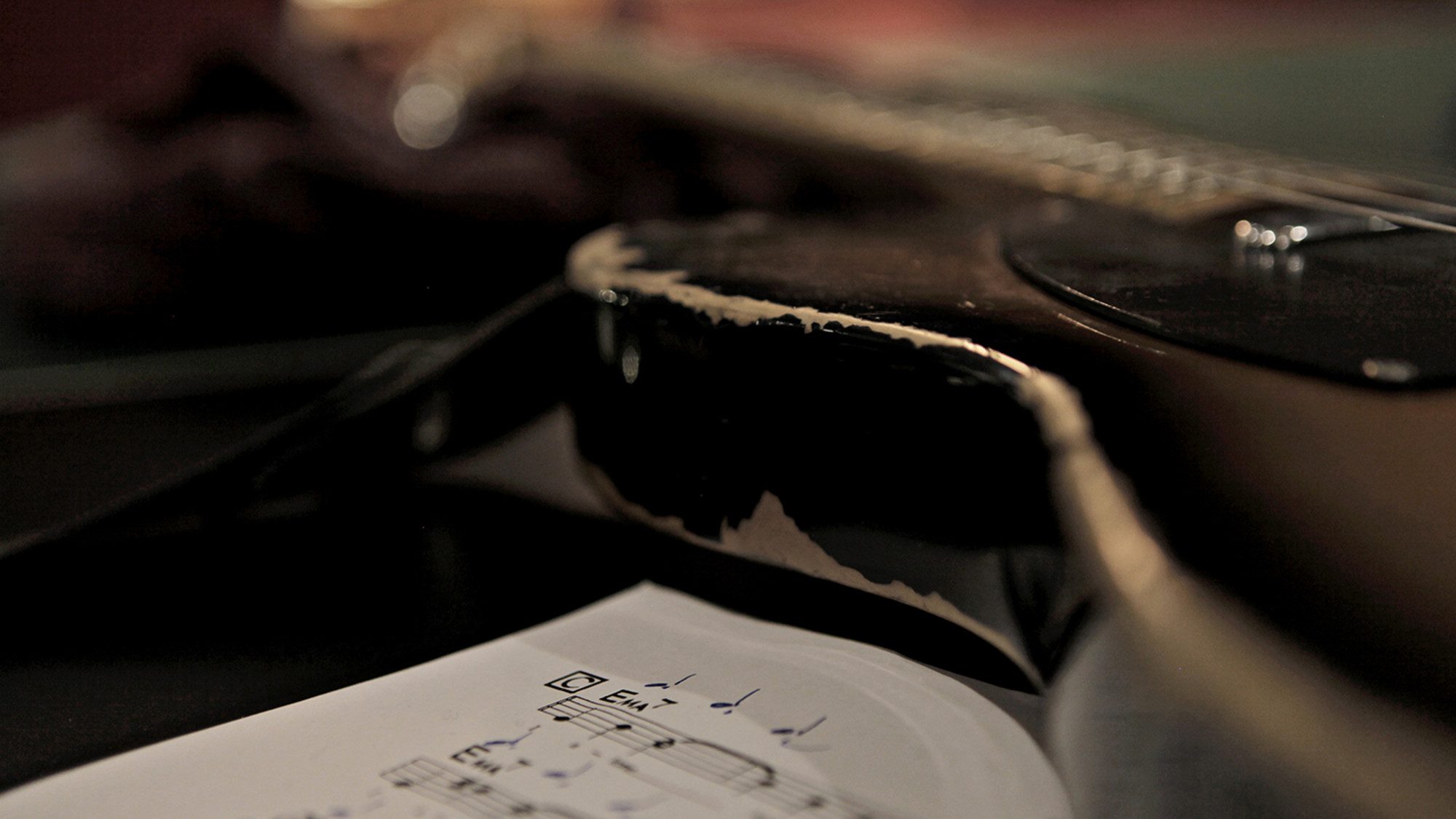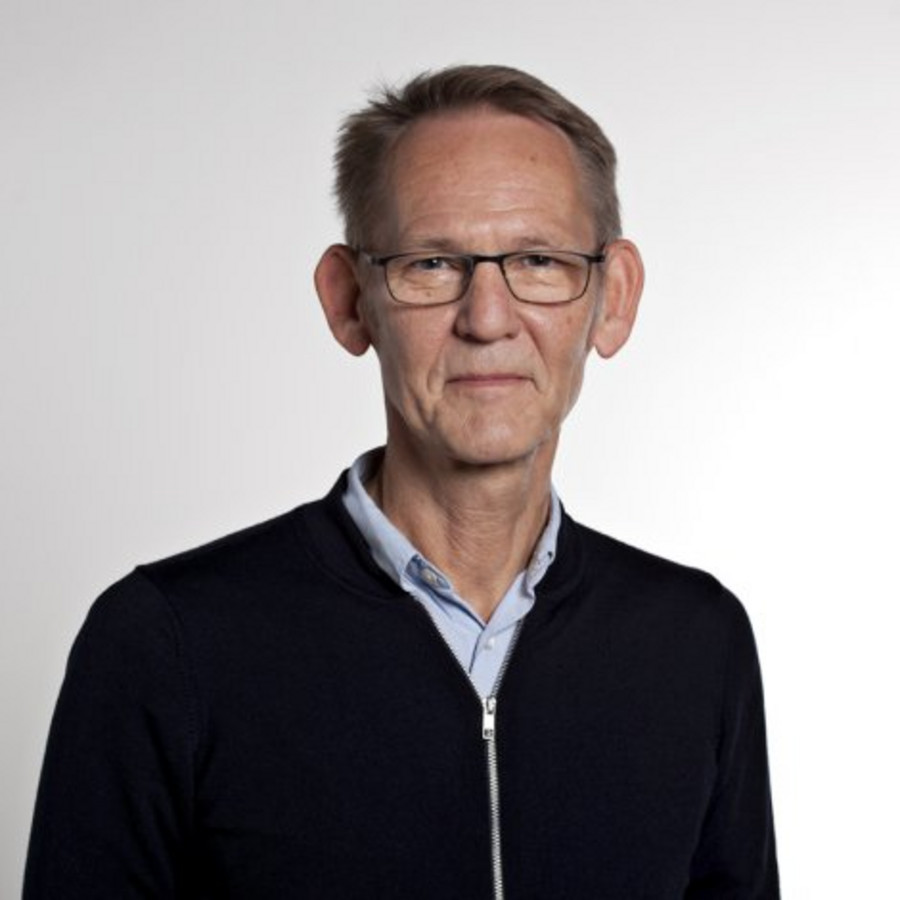The programme is aimed at you who, as a performing musician in jazz and improvised music, want to focus on composition.
You can influence the content of the programme and adapt it to your own artistic profile and development, with a view to strengthening your skills as a composing musician.
For more information about the programme and the graduates, also visit:
How do I apply?
You can read about this and much more under APPLICATION and ENTRANCE EXAMINATION below.
See as well the general information about application and admission:
| Online application opens | 2 January 2025 |
| Online information meeting via Teams | 14 January 2025 at 14:50-15:35 CET |
| Deadline for online application | 4 February 2025 at 12:00 CET |
| 1st round: You are not present | 10 - 28 February 2025 |
| Outcome of the 1st round | 6 March 2025 by email |
| 2nd round: You attend the exam at RMC | 31 March - 4 April 2025 |
| Outcome of 2nd round | 10 April 2025 by email |
| Online meeting for applicants offered a study place | 22 April 2025 at 16:00-17:00 CET |
| Start of study | 18 August 2025 |
Application and Entrance examination: NoCoM
WHO CAN APPLY?
You must either have passed the Bachelor programme Music Performance, Composition or Music Production at RMC or possess a relevant Bachelor degree from another Danish or foreign academy of music.
The Conservatory may accept other similar artistic based bachelor's degrees in music as a qualification for entrance.
Please note that only a limited number of students can be admitted to the master’s programmes at the Conservatory each year, so the applicants will be selected on the basis of abilities and skills.
WHERE TO APPLY?
You must apply online through:
You must create a profile, fill in the online application form and upload relevant files.
WHAT SHOULD THE APPLICATION CONTAIN?
In the application, you will be requested to answer the following questions:
- Please select your main instrument. Please note that you must obtain permission to apply for an instrument other than bass, guitar, piano, organ, percussion, vocal, saxophone, trombone, drums, trumpet, vibraphone, violin, or electronics.
- What is your motivation for studying on the programme - what would you like to learn? (max. 1,000 keystrokes)
- What are your artistic goals/visions - what do you wish to achieve with your music? (500-1,000 keystrokes)
- What are your working methods - how do you work when you are creating your music? (500-1,000 keystrokes)
- What inspires you - and how does this enter into your artistic practice as a musician and composer? (max. 1,000 keystrokes)
- Please provide 2-3 examples of projects (subject/content, project form) that you could imagine working with during the Masters programme. (500-1,000 keystrokes)
In addition, you must write a CV:
- A CV, in which you describe your professional background and your experience as a composer and performing musician. (max. 2,400 keystrokes)
In the application, you will be asked to upload a personal portfolio:
- Music: Upload sound documentation of compositional work for which you have been responsible, and which you believe represent you as a composer and creative musician.
The uploaded material can consist of one or more different examples of your compositional work.
Total duration: 15 minutes.
Submission format: MP3 - Credits: State a list of credits with a precise specification of your own role, if applicable, the role of any others in relation to the uploaded examples. (Max. 800 keystrokes)
- Written description: Briefly describe your considerations about the uploaded compositional material. (max. 1,000 keystrokes)
- Scores or similar: Upload music scores or other compositional documentation (if relevant - not mandatory)
Furthermore, you will be asked to upload:
- Documentation of your
- Bachelor degree, i.e. Degree Certificate including Diploma Supplement*. Submission format: PDF
or - Expected Bachelor degree – documentation of your studies and the content of the courses you have passed, and confirming that your Bachelor programme will be completed by 1st of July 2024. Submission format: PDF
- Bachelor degree, i.e. Degree Certificate including Diploma Supplement*. Submission format: PDF
Please upload certified documentation in Danish, Norwegian, Swedish or English.
Other submitted material will not be included in the assessment.
* Diploma Supplement must be produced by the institution, that have issued your Bachelor Diploma.
What is Diploma Supplement?
APPLICATION FEE
Applicants for a masters programme at RMC must pay an application fee of 500 DKK. The fee covers part of the conservatory's costs in connection with processing applications as well as planning and running the entrance exams, and cannot be refunded after the application deadline has expired.
If you apply for a masters programme immediately after having completed a bachelor program at RMC, special rules apply, and RMC will refund the application fee after the application deadline.
WHO IS SELECTED FOR THE ENTRANCE EXAMINATION?
All applicants who meet the admission requirements will be assessed via an entrance examination.
FORM AND CONTENT OF THE ENTRANCE EXAMINATION
The entrance examination takes place in two rounds:
The first round of the entrance examination consists of an assessment of the material in your personal portfolio.
You will not be present at the assessment.
The second round of the entrance examination consists of a concert and an interview, which takes place physically at RMC.
FIRST ROUND OF ENTRANCE EXAMINATION
In the first round of the entrance examination, an assessment panel consisting of two examiners will listen to the submitted compositional work in your personal portfolio and read the related annexes.
You will not be present at the assessment.
In the first round, the panel undertakes an assessment of the compositional work in your personal portfolio.
In the assessment, emphasis is placed upon your artistic and academic standard in relation to the level required to commence the programme.
You will be assessed according to a 100-point scale, which is a subdivision of the Danish 7 step grading scale. A minimum of 40 points, corresponding to 02 in the Danish 7 step grading scale, is required to pass the examination.
SELECTION AFTER THE FIRST ROUND OF ENTRANCE EXAMINATION
Based on the assessment, a group of applicants are selected to advance to the second round of the entrance examination.
This group is usually two-three times larger than the number of applicants who can be admitted to the programme.
The applicant must pass the first round in order to advance to the second round.
All applicants will receive an e-mail about the outcome of the first round.
Applicants who are selected to advance to the second round of the entrance examination will be notified in the e-mail of the precise time at which the examination will be held.
No feedback is offered to applicant who do not advance to the second round.
SECOND ROUND OF ENTRANCE EXAMINATION
The second round of the entrance examination consists of a concert and an interview between you and a panel of two internal examiners.
CONCERT
You perform a self-selected repertoire on your main instrument with your own group (i.e. at least one other person who sings or plays an instrument).
The repertoire must contain material composed and/or arranged by you and improvisation must be included.
Duration: 10 minutes, including any changeovers.
INTERVIEW
An interview on the basis of your concert and your written application.
You conduct the interview alone in front of the assessment panel.
Duration: 10 minutes.
After the second round of the entrance examination, the panel will conduct an overall assessment of the concert, your written application, CV and the interview.
In the assessment, emphasis is placed on your artistic and academic standard, and on your written application.
The assessment is given in relation to the level required to commence the programme.
You will be assessed according to a 100-point scale, which is a subdivision of the Danish 7 step grading scale. A minimum of 40 points, corresponding to 02 in the Danish 7 step grading scale, is required to pass the examination.
ENTRANCE EXAMINATION LANGUAGE
The entrance examination is normally conducted in Danish. In cases where the applicant does not speak or understand Danish, the examination is carried out in English.
ADMISSION
Based on the result of the second round of the entrance examination, the best-qualified applicants will be admitted to the programme. If several applicants are equally well-qualified, factors such as the requirements of the music business may be included in the Conservatory’s decision on who to admit.
Only 2 students are normally admitted to the programme. Due to the limited number of places available, the Conservatory may be obliged to reject some applicants even if they have passed the entrance examination.
You will receive an e-mail informing you of whether or not you have been admitted.
All applicants who are not admitted will be offered a brief, eight-minute telephone conversation with the responsible internal examiner, who will elaborate on the assessment result on the basis of the assessment criteria used.
WAITING LIST
A limited number of applicants who are qualified for admission, but who have not been admitted due to a lack of places available, may be offered a place on a waiting list. In the period up to 1 June, applicants on the waiting list may be offered admission.
ILLNESS IN CONNECTION WITH THE ENTRANCE EXAMINATION
Illness must be documented by medical certificate if you wish to have the opportunity to take a make-up examination. The medical certificate must be provided no later than three workdays after the examination date. The Conservatory will determine the date of any make-up examination, and you will be notified of this as soon as possible. It will not be possible to take the make-up examination at any other time than that set by RMC. You are responsible for paying the cost of the medical certificate.
Programme structure: NoCoM
The master’s programme Nordic Master: The Composing Musician is an advanced-level educational programme which emphasizes in-depth study, individual options and innovation, with the aim of strengthening your artistic profile.
The programme consists of four semesters, of which the first and last semester are taken at RMC, while the other two semesters are taken at our partner institutions:
1st semester at RMC
2nd semester at the Norwegian Academy of Music, Oslo
3rd semester at the Academy of Music and Drama, Gothenburg
4th semester at RMC
Each semester, the partner institutions also take turns hosting a joint intensive module, where all the students of the programme gather for a week. Besides being an intensive course module focusing, inter alia, on composition and performance, the module also aims at strengthening the networks of all students in the programme.
The teaching is very much characterised by independent work, in which, within the framework of the programme - and based on individual professional guidance - you can develop and organize the content and courses yourself, in dialogue with your supervisors.
The programme emphasizes giving your own ideas and practices the best conditions for development, in a study environment that supports experimentation, exploration and an open work process. At the same time, the focus is on building up knowledge and skills at an advanced level in the field in which you work.
The teaching alternates between scheduled weekly teaching, project work, individual tuition and classes. The teaching seeks to meet the needs of each individual student, while at the same time emphasizing the establishment of a common platform where students can inspire and support each other in their artistic and professional development.
Some subjects of the programme are taught together with students of the Conservatory´s other Master´s programmes.
The programme is structured around the disciplines Composition/Performance, Semester Project and Electives, of which the central subject is Semester Project. In this subject, you develop and implement a complete artistic project each semester. The semester projects focus on various areas and could for example be multidisciplinary or centred on performance. In the subjects Composition/Performance and Electives, you will develop the skills, knowledge, and competencies to support the semester projects. The courses is organised in dialogue with your supervisor.
Under the framework of the joint programme description, the three partner institutions support the subject areas of the programme differently, depending on the local syllabus.
The programme offers ample opportunities to draw on the many strong academic environments and professional networks that the three partner institutions offer in combination.
The programme concludes with a Master's project in the subject Composition/Performance. The Master's project consists partly of an artistic production, where you are both composer and performer, and partly of a written report in which you present your reflections on the project's process and results.
The programme is a full-time study programme, and attendance at tuition is compulsory. The language of instruction is generally the Scandinavian languages. However, teaching may also be conducted in English to the extent necessary.
The Master´s programme corresponds to 120 ECTS point, equivalent to two years of full-time study at 1,620 hours per year. A year of full-time study includes all work connected with the study programme, including classes, independent study, examinations, and all other study-related activities.
The table below shows how the subjects and ECTS points are distributed in the programme.
You can read more about the objectives and structure of the programme in the joint programme description, where you will also find detailed descriptions of the individual subjects – click on the link to the right.
You can read more about the objectives and structure of the programme in the programme curriculum, where you will also find detailed descriptions of the individual courses.
Below you will find the list of RMC teaching staff on the programme in current study year, permanent academic staff as well as contract teachers.
For a list of teachers at Norwegian Academy of Music, Oslo, and the Academy of Music and Drama, University of Gothenburg, please refer to the institutions´ websites.
RMC prioritizes diversity in terms of genre and fields of expertise when the entire group of teachers is composed.
As a student, you are offered a wide spectrum of professional impulses from permanent teaching staff as well as from contract and external teachers.
Within the core subjects of the programme, the teaching performed by the permanent staff will normally not exceed more than two-thirds of the total number of teaching hours.
In relation to special courses, projects and similar activities, you will have the opportunity to meet a large number of external teachers.
Kunstnerisk Udviklingsarbejde / Artistic Development Work
Anders Mathiasen
Jacob Anderskov
Kasper Tranberg
Sharin Foo
Kunstnerisk udviklingsarbejde (individuel, faglig vejledning) / Artistic Development Work (Individual Subject-specific Tuition)
Anja Tietze Lahrmann
Christian Balvig Pehrson
Flavia Huarachi Jørgensen
Kristian Finne Kristensen
Kristina Holgersen
Marcela Lucatelli
Nana Inie
Anders Mathiasen
Pablo Llambias
Christian Balvig Pehrson
Erik Kimestad
Esben Weile Kjær
Jakob Littauer
Jonathan Carl Jensen
Katrine Muff Enevoldsen
Martin Glaz Serup
Nis Bysted
Pablo Llambias
Peter Bruun
Rune Kielsgaard
Lotte Anker
Maria Faust
Pablo Llambias
Music Performance
Flavia Huarachi Jørgensen
Eksternt Integreret Modul / External Integrated Module
Qarin Wikström
Jacob Anderskov
Anders Mathiasen
Kasper Tranberg
Christian Taagehøj
Kandidatprojekt / Master Project
Anders Mathiasen
Soffie Viemose
Sharin Foo
Valgfag / Electives
Greta Schenk
Jens Bjørnkjær
Ida Schou Niegaard
Morten Svenstrup
Louise Dam Eckardt Jensen
Pablo Llambias
Mads Kinnerup Jørgensen
Mija Milovic
Jens Skou Olsen
Niklas Schak
Subjects and ECTS
Subject
- 1. Sem.
- 2. Sem.
- 3. Sem.
- 4. Sem.
- Subject ECTS
Composition/ Performance
45 ECTS
Subject
- 1. Sem.
- 2. Sem.
- 3. Sem.
- 4. Sem.
- Subject ECTS
Composition/ Performance
- 15
- 15
- 15
- 45
Electives
22.5 ECTS
Subject
- 1. Sem.
- 2. Sem.
- 3. Sem.
- 4. Sem.
- Subject ECTS
Electives
- 7.5
- 7.5
- 7.5
- 22.5
Semester project
22.5 ECTS
Subject
- 1. Sem.
- 2. Sem.
- 3. Sem.
- 4. Sem.
- Subject ECTS
Semester project
- 7.5
- 7.5
- 7.5
- 22.5
Master's project
30 ECTS
Subject
- 1. Sem.
- 2. Sem.
- 3. Sem.
- 4. Sem.
- Subject ECTS
Master's project
- 30
- 30


